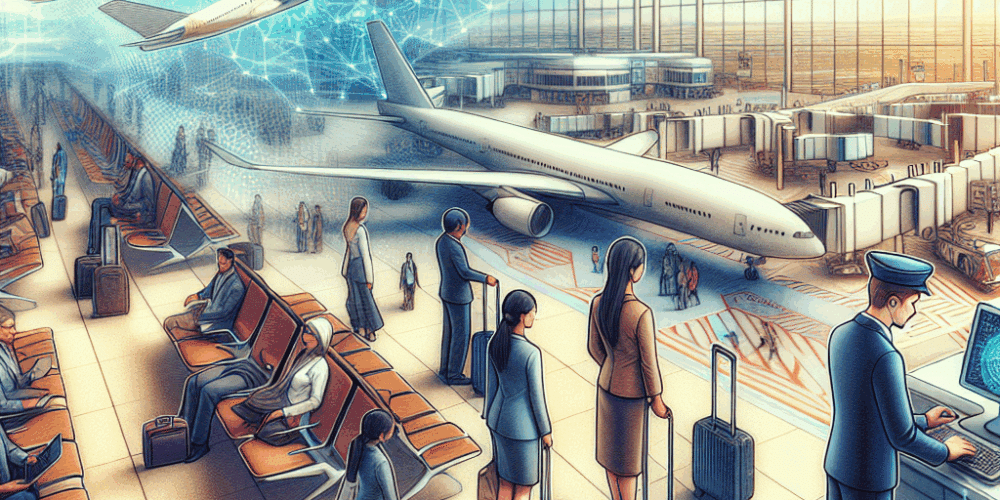In a groundbreaking development in the travel industry, several leading global airlines have announced the adoption of blockchain technology to revolutionize various aspects of their operations. This strategic move is aimed at enhancing customer experiences, improving baggage tracking, and streamlining loyalty programs, marking a significant turn towards digital transformation in aviation.
The adoption of blockchain by airlines comes at a time when digital technologies are increasingly being relied upon to solve persistent issues such as mismanaged luggage, customer dissatisfaction, and complex flight bookings. By integrating blockchain, airlines are looking to build a more resilient, transparent, and efficient operational framework that could set new industry standards.
Blockchain: A Game Changer for Airline Operations
At the core of this innovation is blockchain’s ability to offer decentralized, secure, and tamper-proof databases. Airlines are harnessing these properties to tackle one of the most nagging problems: baggage handling. Lost luggage is a multi-billion-dollar issue for the industry. With blockchain, each piece of luggage is recorded on a digital ledger as soon as it enters the system, and its status is updated in real-time at each point of the journey. This not only enhances tracking but significantly reduces the chances of luggage getting lost or mishandled.
Another critical area being transformed by blockchain is customer loyalty programs. Traditionally, these programs have been plagued by cumbersome redemption processes and limited flexibility. Blockchain enables a more fluid, user-friendly approach allowing customers to access, exchange, and redeem their loyalty points with greater ease and security. For instance, tokens based on blockchain can be used across various services and even exchanged between different loyalty programs.
Implications for Customer Experience and Operational Efficiency
This integration of blockchain technology is expected to dramatically shift how customers interact with airlines. Enhanced transparency and real-time updates are likely to boost consumer confidence and satisfaction, leading to increased brand loyalty. Moreover, the immediacy and accuracy of transactions ensured by blockchain can lead to faster check-ins and smoother transitions through airports.
From an operational perspective, blockchain can offer airlines a significant reduction in costs related to IT and administrative processes. By automating processes like ticketing, customer verification, and baggage handling through smart contracts, airlines can cut down on manual labor and reduce the chances of human error.
Industry Leaders and Future Prospects
Among the pioneers in this initiative is Singapore Airlines, which has already implemented a blockchain-based loyalty program. Their digital wallet for frequent flyers, which allows passengers to convert their travel miles into digital currency, has set a benchmark in the industry. Other major players, including British Airways and Emirates, are also exploring various blockchain solutions to optimize their operations and customer service offerings.
These developments indicate a robust future for blockchain in the airline industry, potentially setting the stage for universal standards for its use in global aviation logistics, security, and customer service. As more airlines come on board, the scalability of blockchain solutions will be crucial in determining its long-term success.
Conclusion
The move by these leading airlines to adopt blockchain technology represents a significant leap towards digital innovation in the aviation sector. As we watch this technology take flight, the potential for wider adoption and the profound impact on both the customer experience and operational efficiency continues to grow. With blockchain, the sky may just be the beginning for a more digitized, streamlined, and customer-centric airline industry.
This development not only reinforces the versatile applications of blockchain beyond its initial financial uses but also highlights a growing trend of digital transformation across industries striving to improve their service delivery and operational capabilities in the digital age.



